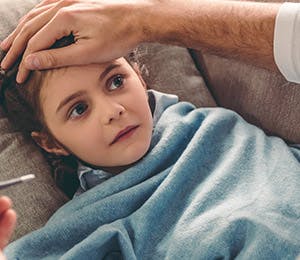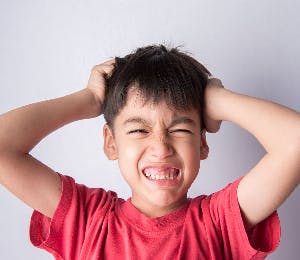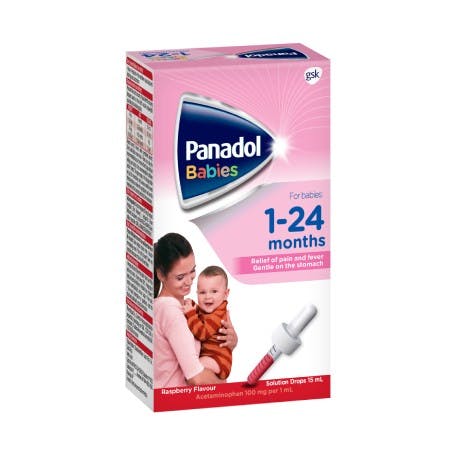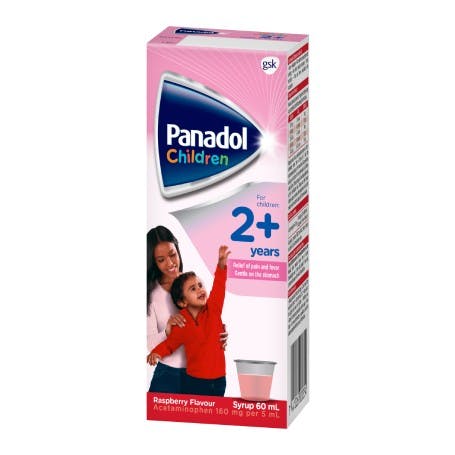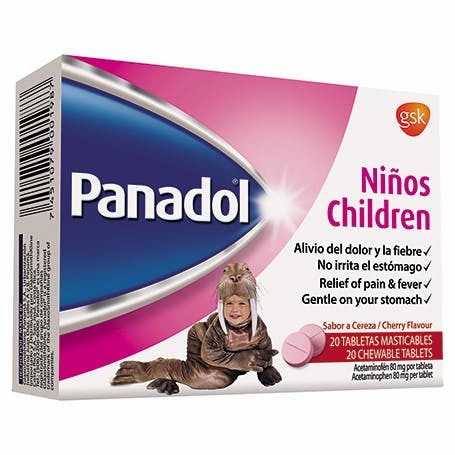
Teething
Teething usually begins around 6 months of age. But it is normal for teething to start at any time between 3 months and 12 months of age. It is a process in which the first set of teeth, called primary teeth or milk teeth, erupt and break through the gums. Teething symptoms may begin about 3 to 5 days before a tooth breaks the skin, causing pain and discomfort to the child.
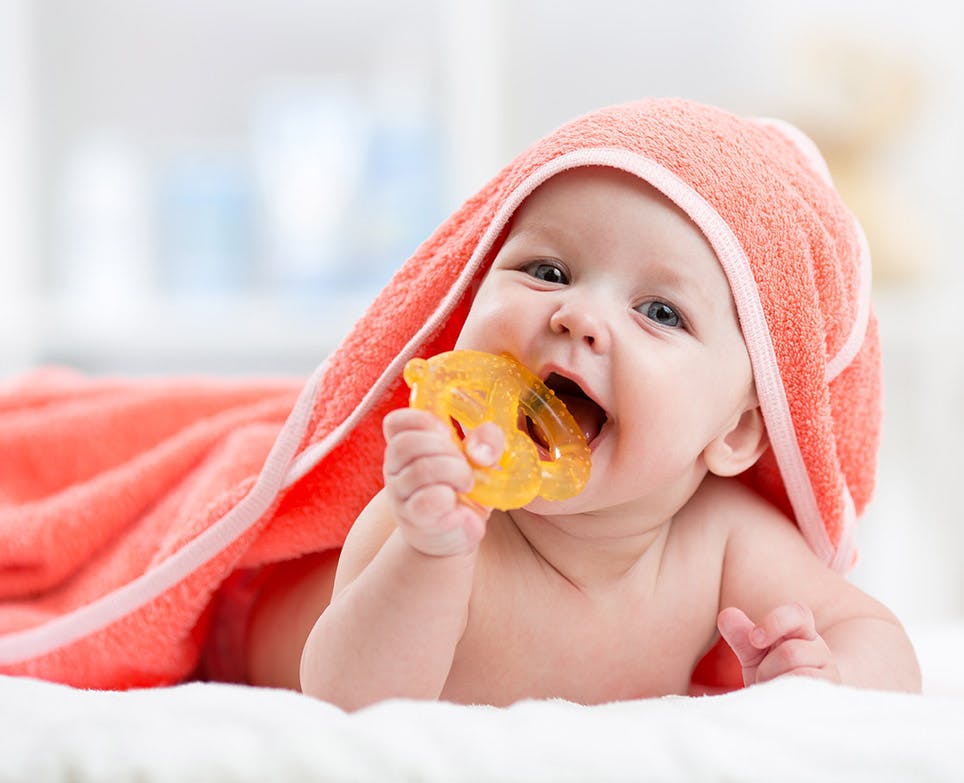
Teething – taking care of your baby’s teeth
Babies can get their first tooth anytime between three and fifteen months, but commonly between four and nine months — although discomfort may start earlier. Dribbling at three months is usually a result of your baby learning to put things in his/her mouth, which is part of normal development.30-32
Pain management and what can you do to help31,32?
- Rub your baby’s sore gums gently with your finger
- Give your baby a teething ring – either a soft rubber one, or the plastic type that can be kept in the refrigerator
- If you think your baby is in pain, consider giving acetaminophen, such as Children’s Panadol®, as directed for the child’s age
- Avoid hard sharp-edged toys that could damage teeth and gums.
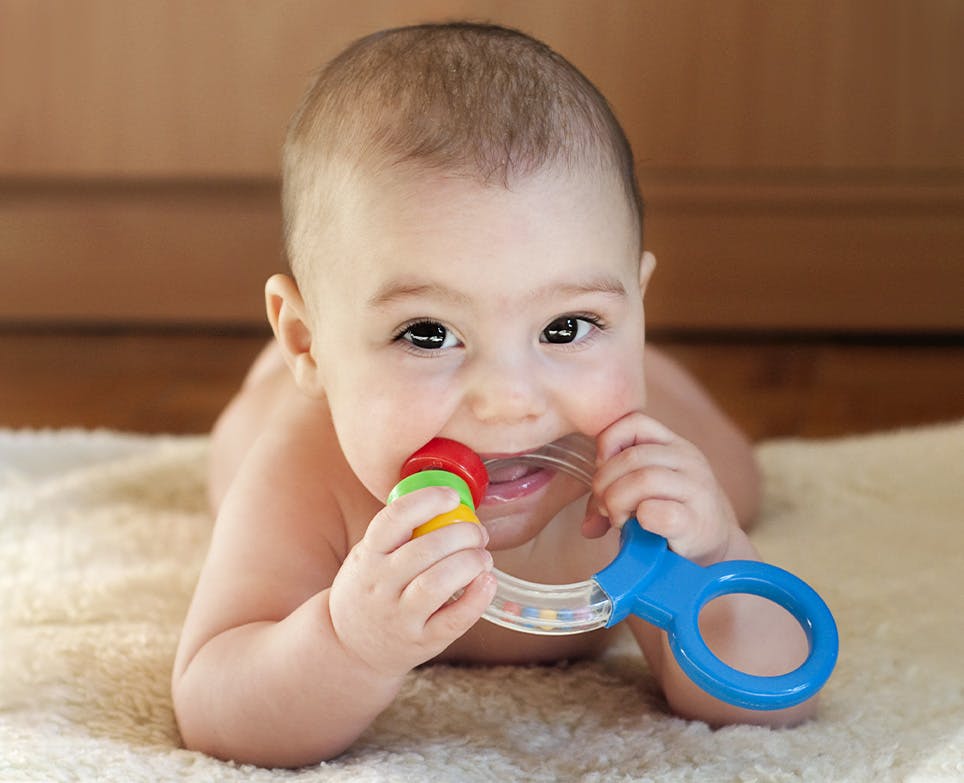
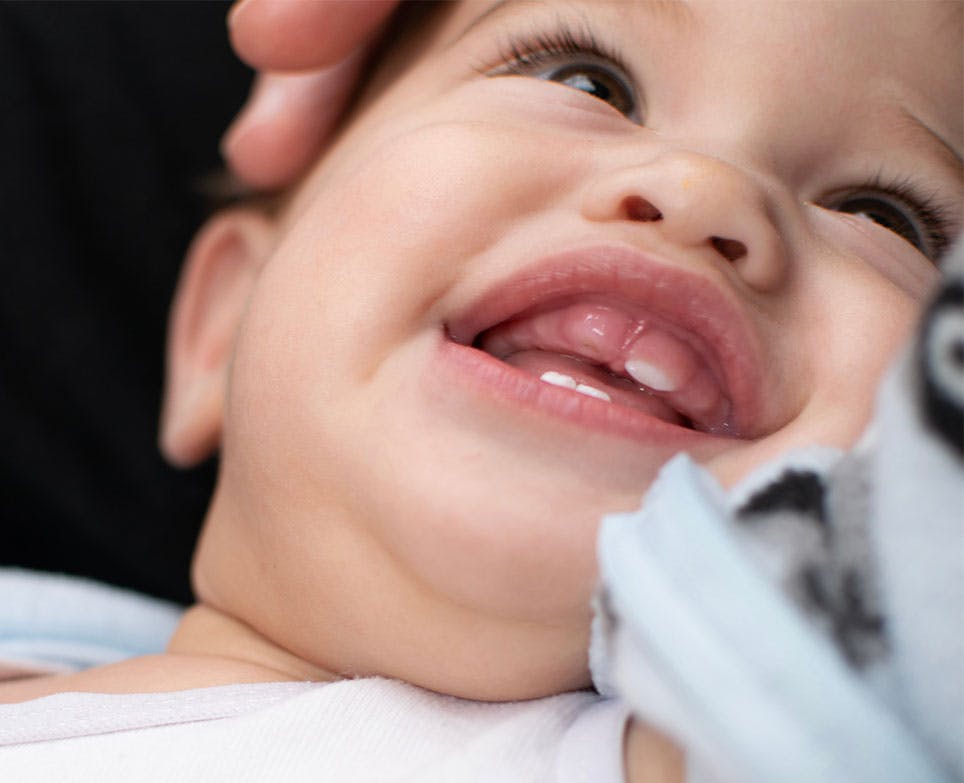
Don’ts30-32
- Don’t dip dummies or teething rings in honey or sweet foods, as it may lead to dental decay (honey shouldn’t be given to babies under 12 months).
- Don’t suck your baby’s dummy and give it back to them, as you will transfer bacteria from your mouth to theirs.
Signs of teething30-32
- Rosy, flushed cheeks
- Increased dribbling
- Tugging at ears
- Chewing on everything
- Tender swollen gums
- Irritability
- Disturbed sleep
- Poor appetite
- Loose, frequent stools
- Sore red bottom or rash.
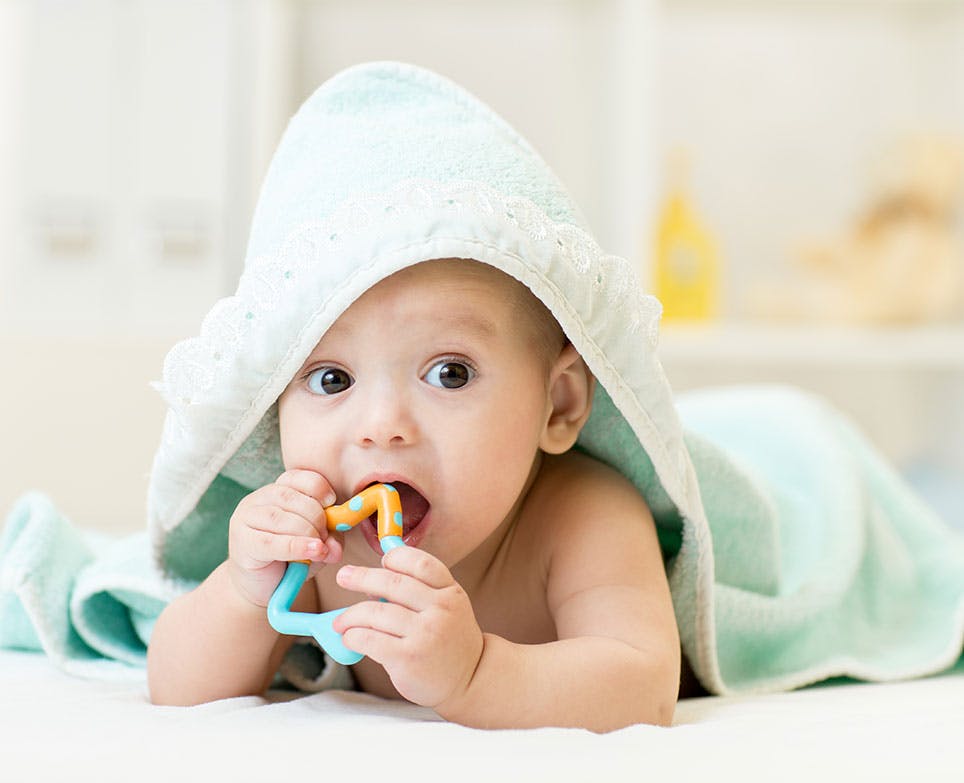
Note: Generally, teething does not cause a fever. If your baby has a high temperature, consult your doctor.31,32
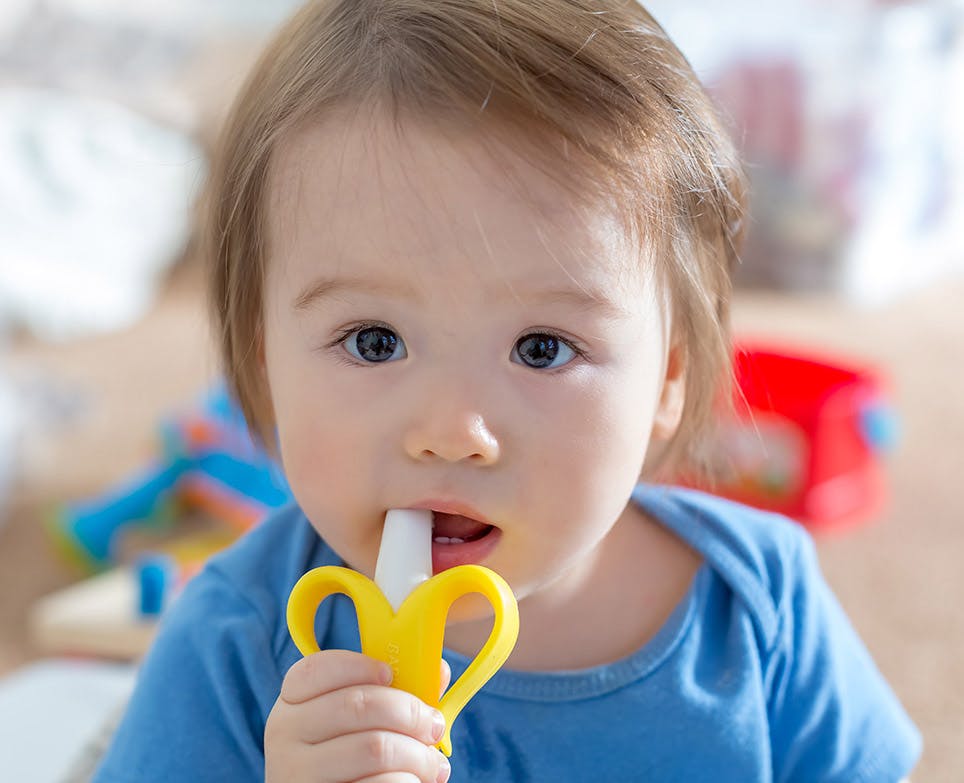
The importance of first teeth30
What many parents don’t realise is that emerging baby teeth need to be looked after as carefully as we look after our own teeth.
As well as their obvious importance for chewing and speaking, they help proper jaw development, and reserve the spaces for the permanent teeth to come through later.
Tips for caring for baby’s teeth33
- Start cleaning when teeth appear. Gently wipe with a clean damp cloth at bath time.
- Progress to a small soft bristle toothbrush with water. (There are special brushes available for babies).
- Hold the baby sitting against you facing the bathroom mirror so they can see their teeth being cleaned.
- Let your baby play with their toothbrush while they watch you brush your teeth. (It takes years for them to learn how to brush).
- Start using a pea-sized amount of low fluoride children’s toothpaste only when they have learnt to spit things out from their mouth.
- Limit amount of sugary foods in diet.
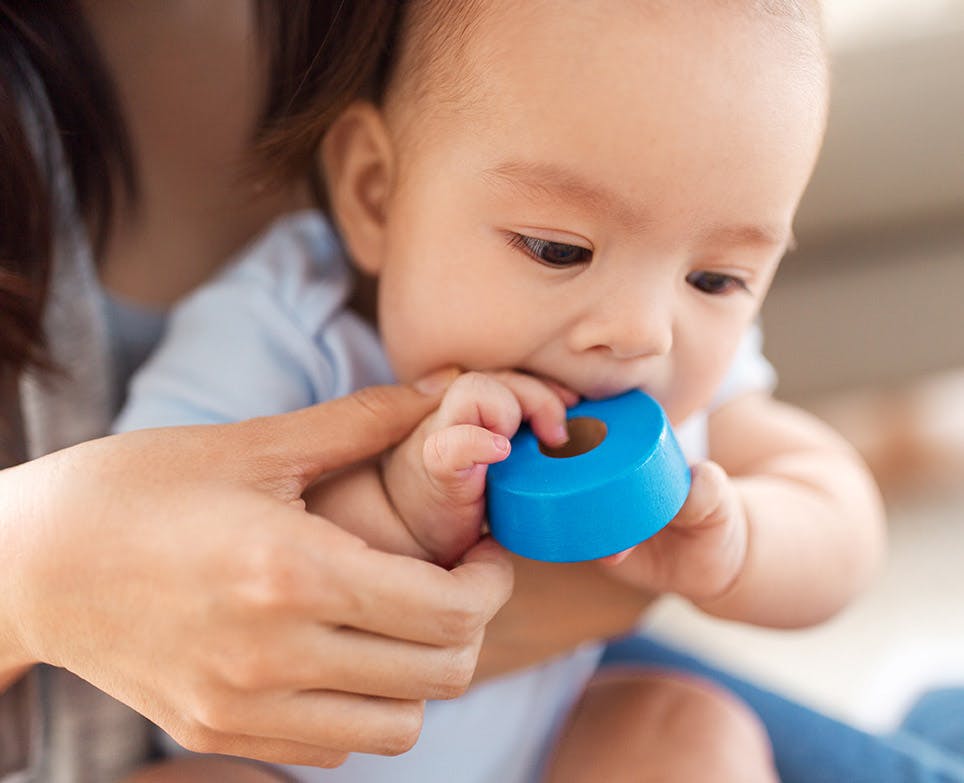
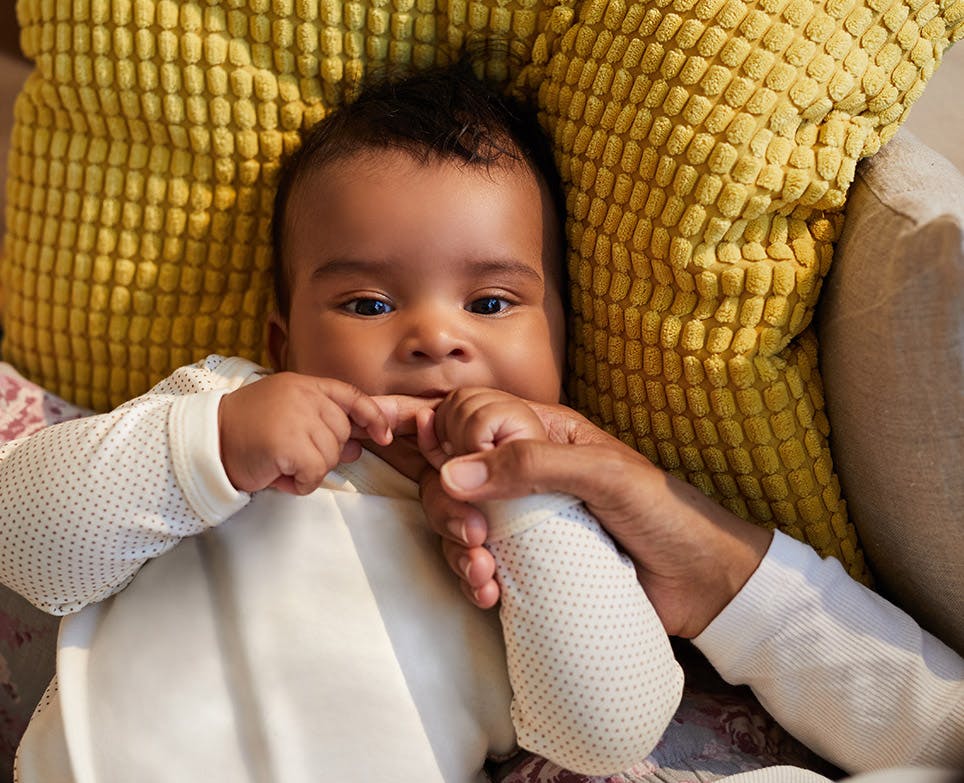
How long do baby teeth last?34
- The front teeth will last until the age of five to seven years.
- The back molars last until about 12 years.



